International
Supreme Court unanimously rules that public officials can be sued for blocking critics on social media
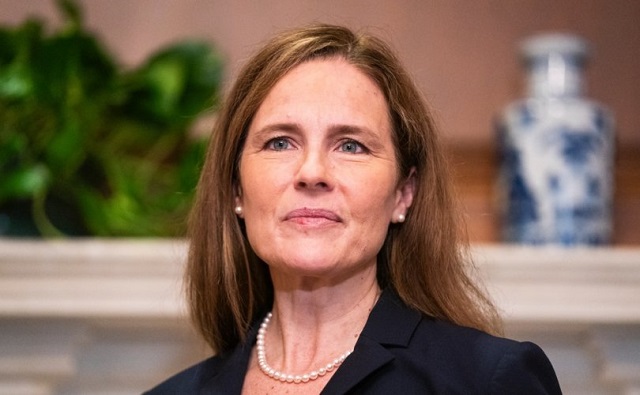
From LifeSiteNews
Supreme Court Justice Amy Coney Barrett Justice noted that the personal social media accounts of public officials often present an ‘ambiguous’ status because they mix official announcements with personal content.
The United States Supreme Court ruled unanimously on Friday that government officials who post about work-related topics on their personal social media accounts can be held liable for violating the First Amendment rights of constituents by blocking their access or deleting their critical comments.
In a 15-page opinion, Justice Amy Coney Barrett noted that the personal social media accounts of public officials often present an “ambiguous” status because they mix official announcements with personal content.
The court ruled in two cases where people were blocked after leaving critical comments on social media accounts of public officials.
The first case involved two elected members of a California school board — the Poway Unified School District Board of Trustees — who blocked concerned parents from their Facebook and Twitter accounts after leaving critical comments.
The court upheld the 9th U.S. Circuit Court of Appeals ruling that said the board members had violated the parents’ free speech rights.
The second case before the court concerned James Freed, Port Huron, Michigan’s city manager who had blocked constituent Kevin Lindke from commenting on his Facebook page after deleting his remarks about the city’s COVID-19 pandemic policies.
Lindke believed that Freed had violated the First Amendment by doing so and sued Freed.
Freed maintained that he launched his Facebook page long before becoming a public official, arguing that most of the content on his account concerned family-related matters.
Justice Barrett explained:
Like millions of Americans, James Freed maintained a Facebook account on which he posted about a wide range of topics, including his family and his job. Like most of those Americans, Freed occasionally received unwelcome comments on his posts. In response, Freed took a step familiar to Facebook users: He deleted the comments and blocked those who made them.
For most people with a Facebook account, that would have been the end of it. But Kevin Lindke, one of the unwelcome commenters, sued Freed for violating his right to free speech. Because the First Amendment binds only the government, this claim is a nonstarter if Freed posted as a private citizen. Freed, however, is not only a private citizen but also the city manager of Port Huron, Michigan — and while Freed insists that his Facebook account was strictly personal, Lindke argues that Freed acted in his official capacity when he silenced Lindke’s speech.
Barrett concluded:
When a government official posts about job-related topics on social media, it can be difficult to tell whether the speech is official or private. We hold that such speech is attributable to the State only if the official (1) possessed actual authority to speak on the State’s behalf, and (2) purported to exercise that authority when he spoke on social media.
In the end, the high court sent Lindke’s case back to the Sixth Circuit Federal Appeals Court for a second look.
Perhaps reflecting continued ambiguity following the court’s ruling, both defendant Freed and plaintiff Lindke declared victory.
“I am very pleased with the outcome the justices came to,” Freed told ABC News in a statement. “The Court rejected the plaintiff’s appearance test and further refined a test for review by the Sixth Circuit. We are extremely confident we will prevail there once more.”
Lindke was more effusive and told ABC News that he was “ecstatic” with the court’s decision.
“A 9-0 decision is very decisive and is a clear indicator that public officials cannot hide behind personal social media accounts when discussing official business,” said Lindke.
Legal experts called attention to the persistence of gray area in the law regarding social media due to the narrowness of the court’s decision.
“This case doesn’t tell us much new about how to understand the liability of the 20 million people who work in local, state, administrative or federal government in the U.S. … just that the question is complicated,” Kate Klonick, an expert on online-platform regulation who teaches at St. John’s Law School, told The Washington Post.
Katie Fallow, senior counsel for the Knight First Amendment Institute at Columbia University, told the Post that the court’s ruling does not sufficiently address public officials’ widespread use of personal “shadow accounts,” which constituents often perceive as official.
Fallow said the court was “right to hold that public officials can’t immunize themselves from First Amendment liability merely by using their personal accounts to conduct official business.”
We are disappointed, though, that the Court did not adopt the more practical test used by the majority of the courts of appeals, which appropriately balanced the free speech interests of public officials with those of the people who want to speak to them on their social media accounts.
According to The Hill, the Biden administration and a bipartisan group of 17 states and National Republican Senatorial Committee sided with officials, arguing in favor of their blocks, while the ACLU backed the cons
Friday’s ruling is only the first of several this term that deal with the relationship between government and social media.
“On Feb. 26, the justices heard argument[s] in a pair of challenges to controversial laws in Florida and Texas that seek to regulate large social-media companies,” explained Amy Howe on Scotusblog.com. “And on Monday the justices will hear oral arguments in a dispute alleging that the federal government violated the First Amendment by pressuring social media companies to remove false or misleading content. Decisions in those cases are expected by summer.”
espionage
One in five mail-in voters admitted to committing voter fraud during 2020 election: Rasmussen poll
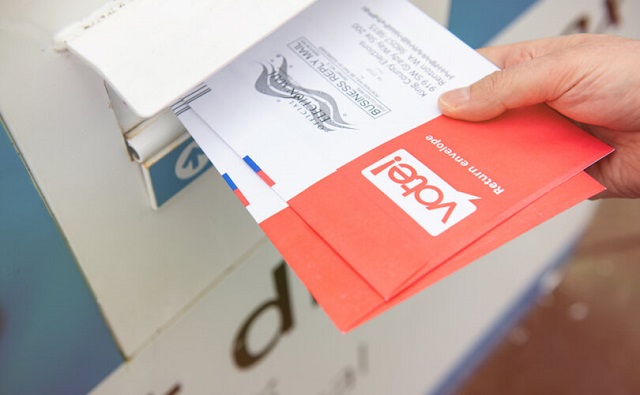
From LifeSiteNews
21% of mail-in voters admitted to illegally filling out a ballot on someone else’s behalf, and 17% admitted to voting from a state where they are not a legal resident.
One-fifth of voters who cast mail-in ballots during the 2020 presidential election admitted to committing at least one kind of voter fraud, according to the results of a recent poll conducted by Rasmussen Reports and The Heartland Institute.
Tucker Carlson posted to X on Friday an excerpt of a discussion with Justin Haskins, director of the Socialism Research Center at the Heartland Institute, in which Haskins explained how a poll conducted together with Rasmussen Reports revealed widespread illegal voter activity among mail-in voters during the 2020 election. The poll was first published in December, 2023.
About one in five mail-in ballots in the last election was fraudulent, handing Biden the presidency. We know this because the people who committed the fraud have admitted it in a new poll. pic.twitter.com/fxHL9hT4sw
— Tucker Carlson (@TuckerCarlson) April 26, 2024
Respondents who indicated that they voted by mail in the 2020 election were asked a series of questions probing for illegal, fraudulent activity, although the questions did not explicitly label these activities as “fraud.”
“For example, we asked people, ‘Did you vote in a state where you’re no longer a legal resident? If you’re not a permanent resident of a state, you can’t vote there. 17% of people, nearly one in five, said yes,” Haskins told Carlson.
He further shared that 21% of mail-in voters admitted to filling out a ballot on behalf of someone else, another illegal activity, and 17% admitted to forging a signature on someone else’s behalf, “with or without their permission.”
“So all told, it’s at least one in five mail-in ballots involved some kind of fraudulent activity,” said Haskins.
Of all voter respondents — both those who voted by mail and those who voted in person —10% said that “a friend, family member, co-worker, or other acquaintance” admitted to them that they voted by mail in a state other than the one they are registered in as their state of permanent residence.
“The results of this survey are nothing short of stunning,” Haskins remarked following the poll results. “For the past three years, Americans have repeatedly been told that the 2020 election was the most secure in history. But if this poll’s findings are reflective of reality, the exact opposite is true. This conclusion isn’t based on conspiracy theories or suspect evidence, but rather from the responses made directly by the voters themselves.”
“A democratic republic cannot survive if election laws allow voters to commit fraud easily, and that’s exactly what occurred during the 2020 election,” he continued. “Although some progress has been made in more than a dozen states since the conclusion of the 2020 election, much more work is needed in most regions of the United States. If America’s election laws do not improve soon, voters and politicians will continue to question the truthfulness and fairness of all future elections.”
Carlson pointed out that claims that the 2020 presidential election results were based on fraudulent votes are considered a “criminal offense” now in the U.S., at least to the extent that “that crime appears to form the basis of one of Trump’s pending indictments.” The indictment in question claims that Trump used “false claims of election fraud to obstruct the federal government function by which those results are collected, counted, and certified.”
Mounds of evidence of fraud in the 2020 general election have emerged, but this has been widely ignored by the mainstream media.
For example, in 2022, a peer-reviewed paper from accomplished economist and former senior researcher for the Department of Justice (DOJ), John Lott, compiled statistical evidence of voter fraud in the 2020 election, specifically, of about “255,000 excess votes (possibly as many as 368,000) for Joe Biden in six swing states where Donald Trump lodged accusations of fraud.”
Batches of votes that were suspiciously tallied overwhelmingly for Biden were reported the night of the election, reversing a former Trump lead in states like Pennsylvania and Wisconsin. And before the election, Project Veritas released a video showing voters being bribed and coaxed to vote for Democrats, including by changing their votes on the ballot.
International
RFK Jr tells EWTN: Politicization of the CIA, FBI, Secret Service under Biden is ‘very troubling’
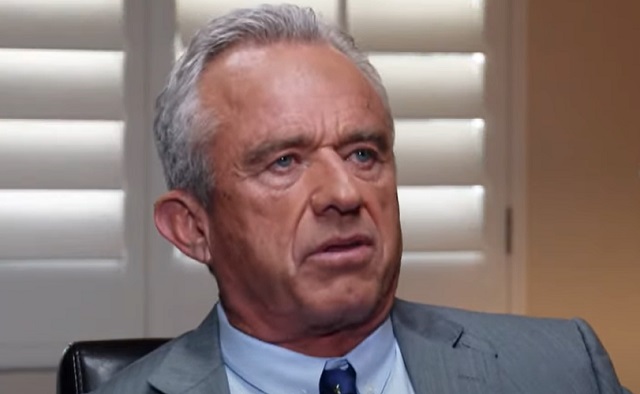
From LifeSiteNews
Independent presidential candidate Robert F. Kennedy Jr. said in an interview with Raymond Arroyo that he is the only presidential candidate who has ever been denied Secret Service protection upon request.
In an exclusive Thursday interview with EWTN anchor Raymond Arroyo, independent presidential candidate Robert F. Kennedy Jr. slammed the “politicization” of the U.S. government under Joe Biden as “very, very troubling,” pointing out that this has involved unprecedented violations of the constitution.
“The liberal media are sanctioning and condoning the politicization of the CIA, the FBI, the IRS, and now the Secret Service by President Biden,” Kennedy told Arroyo. “I think it’s very, very troubling for our Republic that these agencies are now being turned into political instruments by the president in power.
As evidence of this, Kennedy told how he is the “first presidential candidate in history” that has requested Secret Service protection and “been denied,” noting that there have been 44 candidates who “have been given protection prior to the 120-day mandate,” referring to the law requiring that major presidential candidates be given Secret Service protection within 120 days of a general election.
Arroyo called this “mind-boggling” considering his family history, alluding to the assassinations of his uncle, John F. Kennedy, and his father, and Robert F. Kennedy.
Kennedy suspects that the refusal of protection is the Biden administration’s way of forcing him to spend his own money on security so that he has less funds to devote to his presidential campaign.
He told Arroyo he has had four break-ins at his house since he announced he is running for president, but he remains undeterred in his bid for the presidency, now as an Independent.
While Kennedy believes Donald Trump is threat to the country, he noted to Arroyo that he recently said he “could make the argument that President Biden was just as much a danger to the Republic as President Trump.” In fact, Kennedy said in an interview earlier this month that Biden is arguably “a much worse threat to democracy,” citing his censorship of his political opponents.
“President Biden is the first president in history to censor his political opponents,” Kennedy told Arroyo, noting that he has thus far won a case in a federal district court that was upheld by the federal court of appeals that “found exactly that.”
“Exactly 37 hours after he took oath of office, President Biden’s White House began ordering the social media sites to remove me, remove my platforms from Instagram, Facebook, Twitter … ”
“In our country, we passed the first amendment of the constitution specifically to stop government officials from silencing their opponents. Because we know … that it is the beginning of a slippery slope that gives them license for any kind of atrocity,” Kennedy told Arroyo.
In fact, the Biden administration has not only censored but targeted and prosecuted its political opponents as well as citizens who have opposed the apparent “sacred cows” of the administration.
For example, Attorney General Merrick Garland ordered federal authorities in October 2021 to be ready to prosecute citizens, including concerned parents, who spoke out at school board meetings against COVID regulations and the framing of sexual and race discussion in classrooms.
Multiple FBI offices also labeled traditional Latin Mass Catholics as potential extremists, citing an Atlantic article about the Rosary being a weapon as well as the discredited Southern Poverty Law Center.
Israeli-Palestinian conflict
Moving on to the topic of the Israeli-Palestinian conflict, Kennedy shared nuanced views that recognize injustices committed by both Hamas and the state of Israel. He referred to himself as “extremely pro-Palestinian,” and believes they “have a right to their own state.”
However, he also does not “see that Israel has any choice but to eradicate Hamas,” adding that he doesn’t conflate Hamas, “an agent of Iran,” with the Palestinian people.
“Hamas is a kleptocracy — it steals money,” said Kennedy, going on to explain that the leaders of Hamas are billionaires. “They are stealing international aid funding which is meant to help the Palestinian people, and the money they don’t steal, they’re using to build underground tunnels, rather than schools” and useful infrastructure.
Hamas has stated that they do not want land, peace, or negotiations, but only one thing — “the eradication of Israel,” said Kennedy, who shared that he has read their “covenant,” which “specifically says any negotiation with Israel is a violation of Islamic law.”
“When you say ceasefire, what are you talking about? Because Hamas doesn’t want to stop firing these rockets.”
Kennedy stressed that he considers himself “anti-war,” and that he believes World War II is the only “moral” war the U.S. has participated in over the past century.
Abortion
Kennedy reiterated his support for abortion, the killing of unborn children, when asked to address the topic. He repeated the refrain of pro-abortion advocates to Arroyo, telling him that women “ought to have bodily autonomy” and that the government should not be interfering with that, failing to address the fact that a separate human life is at stake in abortion.
“I don’t feel that I’m doctrinaire on either side … I want to find a common ground where Americans can agree on it,” Kennedy said.
Calling abortion a “tragedy” and each one a “trauma,” Kennedy said he would “like to maximize choice but also minimize the number of abortions every year,” at least in part by subsidizing daycare, using money that would be made available by ending U.S. involvement in the Ukraine war.
When Arroyo pushed back on the idea that subsidized daycare would make a difference for mothers who have abortions because having a baby “would be too radical a change in their life,” Kennedy suggested another solution.
“I think we also need to have the best adoption system … and adoption placement systems in the world so people have that option as well. And I think we need to give people every option that they can to bring the baby to term, but not force them. Give them every option, so that it becomes attractive to them,” Kennedy said.
When confronted about whether he supports the Biden administration’s decision to make abortion pills available at every pharmacy, Kennedy eventually admitted that he would not reverse this decision but qualified that he is “worried about every pharmaceutical drug.”
He shared that Peter C. Gøtzsche, “one of the most influential epidemiologists on the planet,” “published a study this week that showed that pharmaceutical drugs are now the primary cause of death in our country.”
“Violence, the mental illness, the suicide, the homicide … these can all be an impact of pharmaceutical drugs … and we know almost nothing about them. Why? Because the pharma industry controls the NIH, CDC, and FDA.”
As with other drugs, Kennedy believes that “everyone should know the side effects (and) the risks of the abortion pill, so that everyone has “an informed choice.”
Kennedy also told Arroyo during their interview that he is opposed to the Biden administration’s new interpretation of Title IX — written by his uncle — according to which gender-confused men can participate in women’s sports.
“I don’t believe that people who are born men ought to be able to participate in consequential sports … against women,” said Kennedy, adding that he is proud of his uncle’s achievement in helping women’s sports to acquire rights equal to men’s sports.
‘Spiritual realignment’
Kennedy shared with Arroyo that while the Catholic faith was the “centerpiece” of his life growing up, he became distant from God during a 13-year period after his father’s assassination when he became addicted to drugs.
“During that period of time, I wouldn’t say I lost my faith, but when you’re living against conscience, which you have to do if you’re addicted to drugs, you push God out over the periphery of your horizon,” Kennedy said. “So the concept of God was, although it never was erased from me, it was just a distant concept that was not part of my day-to-day life.”
According to Kennedy, his recovery “involved a profound spiritual realignment” that has been the center of his life ever since.
While he lost his compulsion to use drugs at that point, he noted, “you can’t live off the laurels of a spiritual awakening. You have to renew it every day, and you renew it through service to other people.”
In response to questions from Arroyo, Kennedy shared that he prays “pretty much all day,” and that his faith keeps him “peaceful” even when he is attacked from all sides for his views and his presidential run, even by family.
“I think of it as like being on the ocean during (a) storm when there’s a tremendous amount of turbulence on the surface, but it allows me to sink below the surface and be in the stillness. There’s the confidence that all of that is an illusion, it’s a distraction,” Kennedy said.
“All of the figures that I admire … went through a period of rejection in their lives. Rejection by their families, rejection by their friends … being pariahs within their communities. In many ways, their achievements were meaningful because of that social disdain that they experienced during parts of their life.”
-

 espionage8 hours ago
espionage8 hours agoOne in five mail-in voters admitted to committing voter fraud during 2020 election: Rasmussen poll
-

 Business7 hours ago
Business7 hours agoHonda deal latest episode of corporate welfare in Ontario
-

 Opinion2 days ago
Opinion2 days agoThe Climate-Alarmist Movement Has A Big PR Problem On Its Hands
-

 Brownstone Institute2 days ago
Brownstone Institute2 days agoThe Teams Are Set for World War III
-

 Alberta2 days ago
Alberta2 days agoFormer senior financial advisor charged with embezzling millions from Red Deer area residents
-
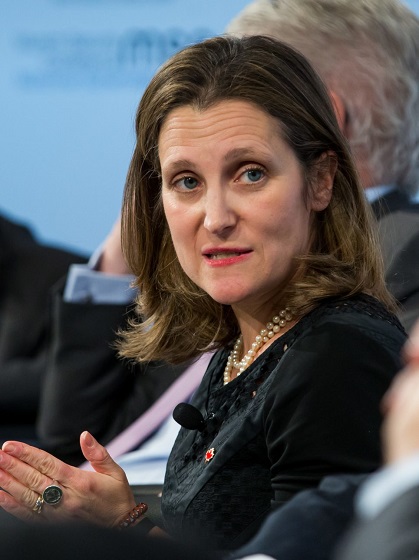
 Frontier Centre for Public Policy2 days ago
Frontier Centre for Public Policy2 days agoBudget 2024 as the eve of 1984 in Canada
-

 COVID-191 day ago
COVID-191 day agoPfizer reportedly withheld presence of cancer-linked DNA in COVID jabs from FDA, Health Canada
-
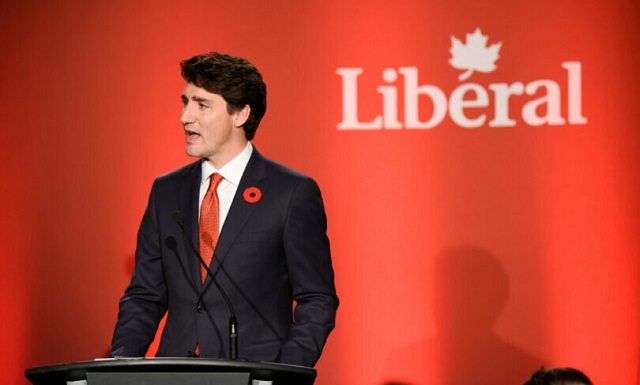
 National1 day ago
National1 day agoAnger towards Trudeau government reaches new high among Canadians: poll








